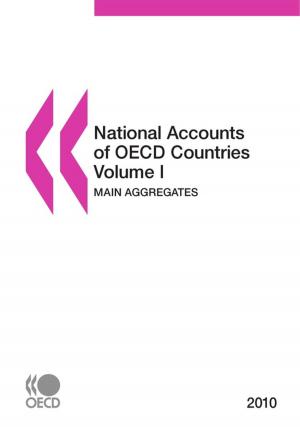Dedicated Public-Private Partnership Units
A Survey of Institutional and Governance Structures
Nonfiction, Social & Cultural Studies, Political Science, Government| Author: | Collective | ISBN: | 9789264064843 |
| Publisher: | OECD | Publication: | March 3, 2010 |
| Imprint: | OECD | Language: | English |
| Author: | Collective |
| ISBN: | 9789264064843 |
| Publisher: | OECD |
| Publication: | March 3, 2010 |
| Imprint: | OECD |
| Language: | English |
Dedicated public-private partnership (PPP) units are organisations set up with full or partial aid of the government to ensure that the skills needed to handle third-party provision of goods and services are made available and clustered together within government. Such units enhance the capacity of government to successfully manage the risks associated with a growing number and value of PPPs. Although a relatively recent phenomenon, in 2009 more than half of all OECD countries reported the existence of a dedicated unit of some kind.
This book provides an overview of dedicated PPP units in OECD countries, including case studies covering: the State of Victoria (Australia), Germany, Korea, South Africa (an OECD enhanced engagement country), and the United Kingdom. It examines the functions and locations of dedicated PPP units, the role they play in the procurement process and the lessons learned for other countries that have already established or are considering establishing a dedicated PPP unit.
Further reading
Public-Private Partnerships: In Pursuit of Risk Sharing and Value for Money (OECD, 2008)
Dedicated public-private partnership (PPP) units are organisations set up with full or partial aid of the government to ensure that the skills needed to handle third-party provision of goods and services are made available and clustered together within government. Such units enhance the capacity of government to successfully manage the risks associated with a growing number and value of PPPs. Although a relatively recent phenomenon, in 2009 more than half of all OECD countries reported the existence of a dedicated unit of some kind.
This book provides an overview of dedicated PPP units in OECD countries, including case studies covering: the State of Victoria (Australia), Germany, Korea, South Africa (an OECD enhanced engagement country), and the United Kingdom. It examines the functions and locations of dedicated PPP units, the role they play in the procurement process and the lessons learned for other countries that have already established or are considering establishing a dedicated PPP unit.
Further reading
Public-Private Partnerships: In Pursuit of Risk Sharing and Value for Money (OECD, 2008)















